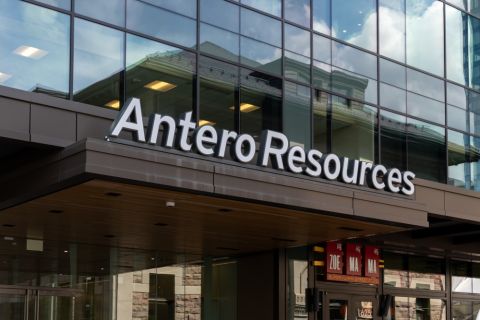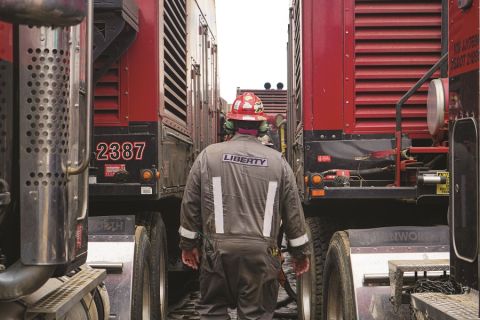Special to E&P
Lukoil Chairman of the Board Valery Isaakovitch Graifer, general chairman of the
2006 SPE Russian Oil and Gas Technical Conference and Exhibition, analyzed the Russian oil and gas industry during an interview.
The conference is Oct. 3 to Oct. 6 at the Crocus Exposition Hall in Moscow. Details are available at www.russianoilgas.com.
Q. Russia's Arctic Offshore has been highlighted as a key area of technical interest. Can you discuss some of the main challenges and potential solutions for the exploration and future development of these often harsh environment areas? Is there any particular technology that you believe is vital to the region's eventual successful exploitation?
A. The Arctic region is such an interesting topic that I would get in details on it. It's so vitally important to be environmentally friendly in this area. To have a very good safety record and to design systems to be very safe overall is crucial for companies operating in the Arctic.
The technical challenges are many. I can name a few here - how to find the prospective structures, how to best do seismic surveys at water areas covered with ice that never melts. Drilling issues are another key area - how to drill from moving ice is one I can name. Special attention shall be paid to the issues to do with hydrocarbons transportation.
A lot of work has been done in Norway with cold flow, multiphase flow, for example, that enabled the industry to optimize the product transportation scheme and to put new fields into operation. But the industry must really concentrate and focus on designing environmentally safe systems for this area. If I had to pick a crucial technology in this area, I would say it must be subsea completion technology.
Q. Similarly, Western Siberia is another key area of equal significance. What advances are there still to be made in terms of production enhancement and increasing known and recoverable reserves in many of these 'brownfield' areas?
A. What we are going to use in Western Siberia, and what will help us a great deal in the future, are advanced hydrocarbons recovery stimulation technologies. Three-D seismic and better reservoir modeling will help us to better understand the large field properties, and we will be able to better exploit the fields, with better sweeping of areas already produced.
I don't expect us to find any more giant fields in this area. But we will be able to find smaller fields, maybe in the range of 50 to 100 million bbl of oil reserves. We will also be able to keep production growing by improving recovery efficiency. At present in certain best strata and fields, oil recovery efficiency is already 50% and above. I think - and this is just my estimate - if we keep doing what we are doing, and the industry keeps developing in the right direction, working over wells, finding missed areas, then the recovery factor would reach 45% to 50% for Western Siberia on average.

Q. Please highlight what you believe are the most pressing/urgent technology gaps to solve, and what new engineering aspects you see as most likely to emerge from the global oil industry. Are there any new or potential technologies or processes that you believe could enable the industry to make a step change in its performance?
A. I think that one significant technology gap we have in Western Siberia is that we do not do any exploration deeper than in the Jurassic-age rocks. That was happening for different reasons, but exploration works were focused on the Cretaceous and Jurassic layers. But we do not see much deeper, so I believe that once we solve that problem we will be able to find new reserves. This is something that oil companies will focus on in the near future, and there's a role to be fulfilled by western service companies and geophysical companies. We must jointly review this issue and come up with solutions.
Q. Russia has world-class 'giant' oil and gas fields, and others exist, of course, around the world, in Saudi Arabia, Norway and Alaska, for example. What parallels can you see amongst these major development projects? How can the different operating companies learn from each other's successes and mistakes, and how best can they implement and pass on the experience gathered by the industry?
A. Large chunks of the world's production come from giant fields. The purpose of one of the plenary sessions of our conference - 'Case Studies Of Unique Fields' - is to look at these giant fields and examine how they were developed at different times. Some were developed 70 years ago, others 50 years or 40 years ago. Then we're looking at Prudhoe Bay some 30 years ago, and Norway in the last 15 to 20 years. Also, we will look at giant gas fields. We will focus on how technology advances have changed the philosophy of field developments such as these and study what has been done differently on those mature fields with these technology advances.
On most of these fields, reserves kept being added from the time of discovery, with the industry able to keep increasing the reserves due to advances in technology. There are examples of reserves that were discovered but with initial production being insignificant, for example, the Ryabchik layer of the giant Samotlor field. It was only with massive hydraulic fracturing technology that these reserves became much more actively developed.
But offshore, technology advancement is much more important. Our next giant field is going to be offshore, I believe. Technologies are still required to make deepwater production more economical.
Q. Could you please outline and explain the basic aims and theme of the Russian Oil and Gas Technical Conference & Exhibition?
A. The 2006 SPE Russian Oil and Gas Technical Conference and Exhibition will be a major international event for the upstream oil and gas exploration and production community. It is being organized by the Society of Petroleum Engineers and Spearhead Exhibitions Ltd., the partnership responsible for the Offshore Europe Exhibition and Conference (OE) in Aberdeen, United Kingdom.
The conference theme is 'Technol-ogy for World Class Resources.' The theme speaks for itself and reflects the wide historical industry perspective, rich intellectual resources and unique natural resources of Russia.
"Both in Russia and worldwide the more resources are produced, the worse their structure gets. In the past in Western Siberia and in Volga river basin we used to actively develop Cretaceous and Devonian deposits and had not been actively involved in development of resources of under-gas-cap zones, thin oil-pay fringes, low-permeability reservoirs. Today we have to develop the resources of low-permeability reservoirs of Jurassic and Achim deposits of Western Siberia as well as resources of viscous oil of carbonaceous deposits, and resources of Permian deposits of Tatarstan natural bitumen. For Tatarstan and Bashkiria it is very important to develop bitumen resources, but it is not possible to do it using the open-cut mining method like it is being done in Canada as the strata are deposited deeper, and much plough-land would be sacrificed. These difficult practical tasks will be solved by today's generation of engineers and scientists.
Consequently, the aim of our conference is to solve practical tasks; it is not just academic sessions. It is very important to integrate the technological advances of the E&P industry all over the world with the unique resources of Russia to secure the energy future of our planet under the conditions of growing hydrocarbon costs.
Q. How important is it to implement the process of the exchange of technology and best practices with other countries and companies? What benefits do you foresee?
A. It will be important for the conference participants to see that Russia is becoming part of the world's technology forum. So much technology in use today around the world was originally invented by Russian scientists. Hydraulic fracturing, for example, was first done in Russia early in the 1950s. The first submersible pump was invented by Engineer Arutyunov. The first multilateral wells were drilled in Bashkiria. These are just some of the instances I could give.
A lot of these ideas then came back to Russia, much refined and improved by the western companies. So some of the best Russian ideas are already used around the world. But probably there are other ideas and technologies we have in use here in Russia that the world is still unaware of! As for the exchange of technology, it is already happening, but a lot more needs to happen still. And technology needs to be a lot better in some areas.
Many people are starting to realize that Russia is one of the biggest hydrocarbon resource holders in the world. World prices and the world's energy balance to a considerable extent depend on how efficiently and fully we develop these resources. I cannot stress strongly enough the importance of this. It is very important in terms of global energy security. We are custodians of a great trust and have to use our resources wisely. So we are very focused on recovery efficiency on the older fields, the search for new prospective structures and satellite fields. This is so important for both Russia and the rest of the world.
Q. The issue of attracting 'new blood' to the industry, and how best to train the engineers of the future, remains an ongoing source of discussion and debate around the world. With a maturing workforce currently in place, what must the Russian oil and gas industry do to ensure the right individuals are attracted to the industry and retained? What technological skills do you feel will be crucial for them to learn to help develop the next generation of fields, both within Russia and elsewhere?
A. Many new technologies, the competence and the knowledge of the last decades reside mainly in the West. However the inflow of young experts to the oil and gas industry in the West is ceasing. At the same time there is an ample supply of talent - but it comes from the East. From Russia, China, India and so on. The specificity of today's "fresh blood inflow" is that at present the process of knowledge and experience transfer shall go not only from generation to generation but across the borders of cultures and continents.
What needs to be happening is that the big international companies need to act in this direction. And I believe that many things are being done in this respect. I was very surprised to hear, for example, that Russian nationals are the second biggest group of nationals working at Schlumberger international service company.
I must also stress that we need to work together to keep up and redouble our efforts to communicate to the public that the oil and gas industry is a good industry to work in. It is hard work but it is also so rewarding and interesting! The oil and gas industry in Russia is respected, I can say this for sure. It has done and continues to play such a significant part in the country's affairs and wealth.
Q. What would you say to those who may be considering attending this event but remain undecided? Why should they attend?
A. "We have received over 500 abstracts from all over the world. These have come from many of the world's largest oil companies, the major service companies, and from companies both based in Russia and all around the world in other regions. We have selected about 200 of the most interesting of those to be presented in the program of technical sessions and poster sessions. The quality of the program is going to be something that differentiates it from every other event. The content of this conference is going to be very good technically, created by an outstanding conference committee made up of highly-respected individuals from the leading industry companies. Out of those 200 papers, there is importantly a very good balance. Half of them are Russian, following Russian issues, while the other half represents the world's experience. All are relevant to what we do in Russia.
The exhibition will also be excellent, I believe, with very well known participators' names - producers of technologies and authors of innovative solutions. On top of this, the conference and exhibition is being held in an excellent new modern exhibition facility in Moscow. This is going to be extremely interesting for young people to attend, as well as for those who have long been involved in the oil and gas industry. I commend it to you all!
Q. What is the Society of Petroleum Engineers? What does this society do in Russia, why do you support it and why did you decide to take the main part in preparation of the conference and the exhibition in Russia?
A. Society of Petroleum Engineers is a non-profit institution operating worldwide. Its main objective is to collect and distribute technical information to the benefit of the oil industry. There are about 70,000 active members of the society in 110 countries of the world. There are about 1,000 members of the society in Russia in five sections as well as in student sections. In Russia we organize monthly technical reports by sections, three-day workshops on particular topical problems of up-to-date petroleum business. For example, recently we have held a workshop on horizontal drilling with over 100 participants where very interesting reports were presented and discussed. Such workshops are held two to three times per year; they cover the most burning subjects. Society of Petroleum Engineers holds the conference and exhibition of such scope for the first time in Russia.
Why did I undertake to do this job? I think it is a very important event that the whole oil and gas industry of Russia would benefit from, and I want it to be done well. Society of Petroleum Engineers is a non-profit institution; mostly volunteers work for it. For example, about 70 volunteers participate in preparation of this conference in various functions; they are members of its Executive and Program Committee. There are major executives, academicians and leading technical experts representing leading oil and gas service companies and research institutions among them. Approximately half of them are Russian citizens; half of them are our expatriate colleagues. Jointly this international group of experts forms the subjects of the conference and its plenary sessions. It is a rather large scope of works that people mostly do in addition to their primary jobs.
Recommended Reading
Keeping it Simple: Antero Stays on Profitable Course in 1Q
2024-04-26 - Bucking trend, Antero Resources posted a slight increase in natural gas production as other companies curtailed production.
Oil and Gas Chain Reaction: E&P M&A Begets OFS Consolidation
2024-04-26 - Record-breaking E&P consolidation is rippling into oilfield services, with much more M&A on the way.
Exxon Mobil, Chevron See Profits Fall in 1Q Earnings
2024-04-26 - Chevron and Exxon Mobil are feeling the pinch of weak energy prices, particularly natural gas, and fuels margins that have cooled in the last year.
Marathon Oil Declares 1Q Dividend
2024-04-26 - Marathon Oil’s first quarter 2024 dividend is payable on June 10.
Talos Energy Expands Leadership Team After $1.29B QuarterNorth Deal
2024-04-25 - Talos Energy President and CEO Tim Duncan said the company has expanded its leadership team as the company integrates its QuarterNorth Energy acquisition.




